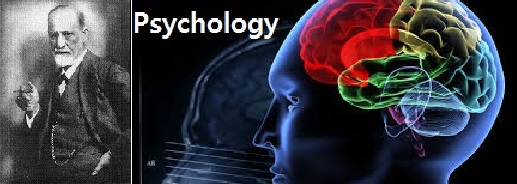
Premature ejaculation occurs when a man ejaculates sooner during sexual intercourse than he or his partner would like. Premature ejaculation is a common sexual complaint. Estimates vary, but as many as 1 out of 3 men say they experience this problem at some time. As long as it happens infrequently, it's not cause for concern.
However, you may meet the diagnostic criteria for premature ejaculation if you:
Always or nearly always ejaculate within one minute of penetration
Are unable to delay ejaculation during intercourse all or nearly all of the time
Feel distressed and frustrated, and tend to avoid sexual intimacy as a result
Both psychological and biological factors can play a role in premature ejaculation. Although many men feel embarrassed to talk about it, premature ejaculation is a common and treatable condition. Medications, counseling and sexual techniques that delay ejaculation - or a combination of these - can help improve sex for you and your partner.
The primary symptom of premature ejaculation is the inability to delay ejaculation for more than one minute after penetration. However, the problem may occur in all sexual situations, even during masturbation.
Premature ejaculation can be classified as lifelong – primary - or acquired – secondary-.
Lifelong premature ejaculation occurs all or nearly all of the time beginning with your first sexual encounters. Acquired premature ejaculation has the same symptoms but develops after you've had previous sexual experiences without ejaculatory problems.
Many men feel that they have symptoms of premature ejaculation, but the symptoms do not meet the diagnostic criteria for premature ejaculation. Instead these may have natural variable premature ejaculation, which is characterized by periods of rapid ejaculation as well as periods of normal ejaculation.
When to see a doctor
Talk with your doctor if you ejaculate sooner than you wish during most sexual encounters. It's common for men to feel embarrassed about discussing sexual health concerns, but don't let that keep you from talking to your doctor. Premature ejaculation is a common and treatable problem.
For some men, a conversation with their doctor may help alleviate concerns about premature ejaculation. For example, it may be reassuring to hear that occasional premature ejaculation is normal and that the average time from the beginning of intercourse to ejaculation is about five minutes.
Causes
The exact cause of premature ejaculation isn't known. While it was once thought to be only psychological, doctors now know premature ejaculation is more complicated and involves a complex interaction of psychological and biological factors.
Psychological causes
Some doctors believe that early sexual experiences may establish a pattern that can be difficult to change later in life, such as:
Situations in which you may have hurried to reach climax in order to avoid being discovered. Guilty feelings that increase your tendency to rush through sexual encounters. Other factors that can play a role in causing premature ejaculation include:
Erectile dysfunction.Men who are anxious about obtaining or maintaining an erection during sexual intercourse may form a pattern of rushing to ejaculate, which can be difficult to change.
Anxiety.Many men with premature ejaculation also have problems with anxiety — either specifically about sexual performance or related to other issues.
Relationship problems.If you have had satisfying sexual relationships with other partners in which premature ejaculation happened infrequently or not at all, it's possible that interpersonal issues between you and your current partner are contributing to the problem.
Biological causes
A number of biological factors may contribute to premature ejaculation, including:
Abnormal hormone levels
Abnormal levels of brain chemicals called neurotransmitters
Abnormal reflex activity of the ejaculatory system
Certain thyroid problems
Inflammation and infection of the prostate or urethra
Inherited traits
Nerve damage from surgery or trauma (rare)
Risk factors
Various factors can increase your risk of premature ejaculation, including:
Erectile dysfunction.You may be at increased risk of premature ejaculation if you occasionally or consistently have trouble getting or maintaining an erection. Fear of losing your erection may cause you to consciously or unconsciously hurry through sexual encounters.
Health problems.If you have a serious or chronic medical condition, such as heart disease, you may feel anxious during sex and may unknowingly rush to ejaculate.
Stress.Emotional or mental strain in any area of your life can play a role in premature ejaculation, often limiting your ability to relax and focus during sexual encounters.
Complications
While premature ejaculation alone doesn't increase your risk of health problems, it can cause significant problems in your personal life, including:
Stress and relationship problems.A common complication of premature ejaculation is relationship stress.
Fertility problems.Premature ejaculation can occasionally make fertilization difficult or impossible for couples who are trying to have a baby.




































